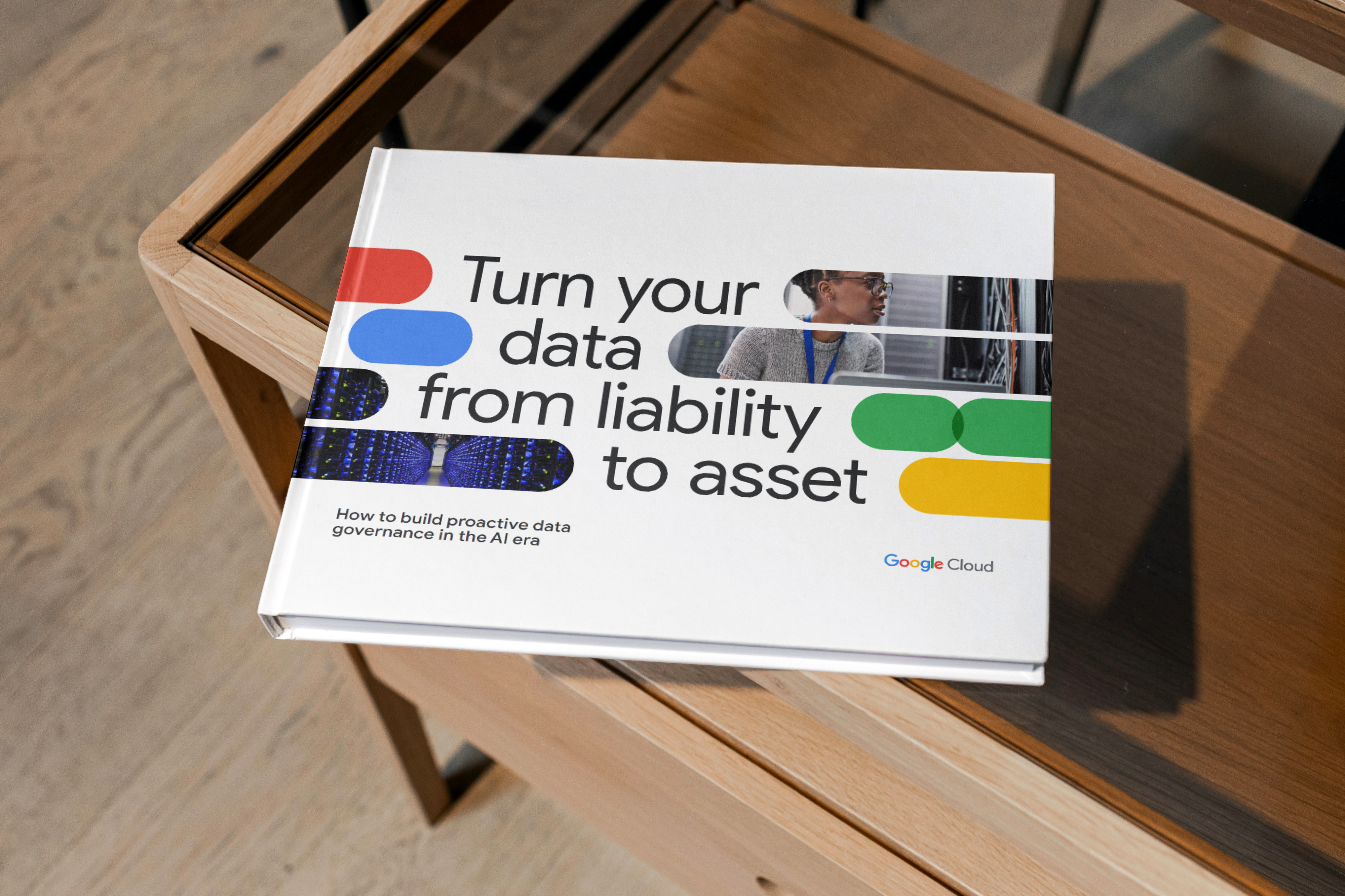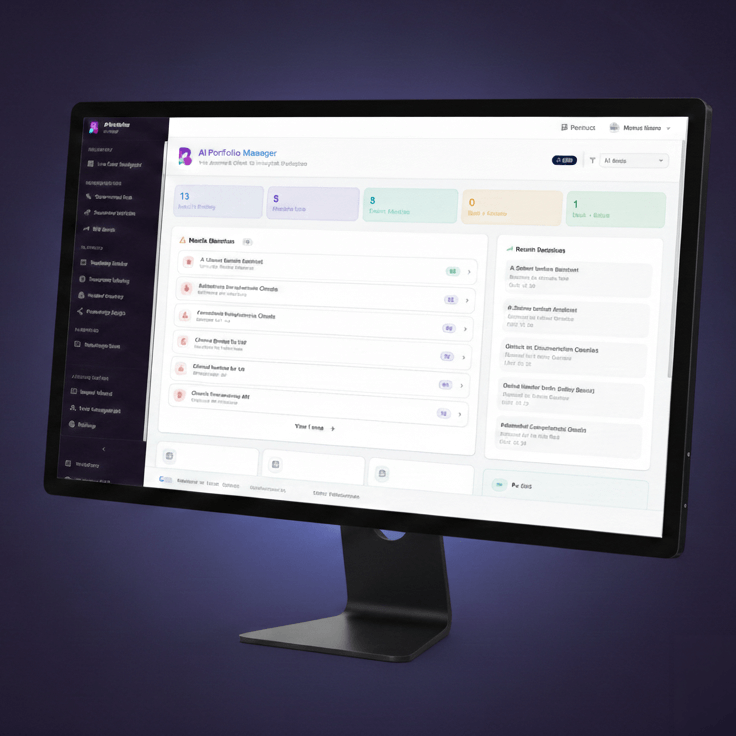Data can be viewed both as a liability and an invaluable asset. While the costs of storing and protecting it are significant, and the risks of data breaches are substantial, the potential of data to propel your organization forward is immense. Regardless of your company size, data is the cornerstone of innovation, providing critical insights for exceptional customer experiences and groundbreaking advancements.
Embracing data governance is not merely about managing risks; it's a strategic approach to unlocking the full potential of your data throughout its lifecycle—from acquisition to disposal. A robust data governance framework not only safeguards your data but also transforms it into a powerful asset.
To help you maximize the value of your data, Google Cloud's new eBook, "Turn Your Data From Liability to Asset," guides you in building a future-proof data governance strategy that supports data throughout its journey to meet your changing business requirements.
In this blog we will explore the key highlights of this guide including:
- Understanding the imperative of data governance in the era of AI
- Prioritizing data quality to drive ROI
- Learning how to turn non-technical users into data-driven decision makers
- and more
The Imperative of Data Governance in the Era of AI
As the volume of data continues to grow exponentially, the need for effective data governance has never been more critical. By 2025, global data creation is projected to exceed 175 zettabytes, making data management an increasingly complex task.
Embracing automated, AI-driven data governance is essential to effectively address the challenges of data quality, democratization, and compliance at scale. Organizations that fail to adopt these advanced governance strategies risk falling behind. Position your organization for the future by leveraging Artificial Intelligence (AI) to streamline and secure your data management practices.
By 2030, companies that fully absorb AI could double their cash flow, while companies that don't could see a 20% decline.
More than just safeguarding information, effective data governance fuels business intelligence and powers innovations like generative AI and large language models (LLMs). To embrace a proactive data governance strategy that places data at the heart of your business strategy, you need a future-proof framework that supports your data throughout its entire lifecycle.
1. Prioritizing Data Quality to Drive ROI
Data quality is the cornerstone of any successful data governance strategy. High-quality data enables organizations to make real-time decisions, power effective AI models, and uncover opportunities for enhanced customer experiences. To achieve this, organizations must build trust in their data by ensuring it is up-to-date, accurate, and complete.
Automated monitoring tools, such as data lineage and observability tools, play a crucial role in maintaining data quality. These tools can detect and repair data anomalies, alerting data engineers to any issues as they arise.
The average financial toll of a data breach is estimated at $4.35 million.
Moreover, data quality is fundamental to improving AI performance. AI models rely heavily on the quality of training data; biases in the data can lead to biased models. By adhering to strict data governance practices, organizations can ensure their data is trustworthy and free from biases, thus creating responsible AI models that drive innovation and maintain ethical standards.
2. Turn Non-Technical Users Into Data-Driven Decision Makers
Data teams often become roadblocks in organizations, hindering the agility needed to respond to market changes and opportunities. Data democratization addresses this by enabling more individuals within an organization to access and utilize data without relying heavily on specialized data teams. This shift not only speeds up decision-making but also spreads the capability to harness data across the organization, promoting a culture of informed decision-making.
69% of data professionals spend an average of 6-10 hours per week responding to, managing, and resolving data access issues.
Balancing Governance with Self-Service
One of the challenges with democratization is the ability to maintain robust data governance while providing broad access to sensitive information. Organizations must develop frameworks that mitigate risks associated with data access and ensure compliance with data protection regulations. The implementation of secure self-service tools and strong governance policies is crucial. These tools help manage who can access what data and ensure that data handling complies with both internal policies and external regulations.
Enhancing Business Intelligence through Insight Access
Beyond access to raw data, true democratization involves understanding the insights and implications of that data—what it signifies and how it can be applied to drive business growth. For example, consider a renewals manager who uses insights from customer data to identify upsell opportunities, such as suggesting additional seats for a software service if they notice a customer consistently maxes out their current capacity.
Integrating AI and Advanced Analytics
Advanced AI and analytics tools embedded within business platforms can transform how employees interact with data. These tools provide critical insights at the right time, integrated within the workflows employees are already familiar with, thus enhancing productivity and decision accuracy. The future of business intelligence lies in leveraging AI-powered tools and natural language processing to provide real-time, context-aware insights accessible directly within the business applications employees use daily.
The Impact of Democratization on Innovation
Data democratization also plays a pivotal role in fostering innovation within organizations. By lowering barriers to data access, a wider pool of employees can engage in analytical tasks, propose solutions, and innovate processes. This inclusive approach to data use encourages a collaborative environment where ideas can be shared and developed more freely, significantly accelerating innovation cycles and reducing time-to-market for new initiatives.
Security and Collaboration
As organizations encourage collaboration and break down silos, ensuring the security of data interactions becomes paramount. Automated processes and domain-specific architectures help maintain the balance between accessibility and security, ensuring that collaborations are secure and compliant with data governance standards.
While data democratization presents challenges, particularly in balancing access with security, the benefits it brings in driving informed decision-making and fostering innovation are invaluable. Organizations that get it right can expect not only to enhance operational efficiency but also to drive substantial business growth and innovation.
3. Go Beyond Architecture
Dark, duplicate, and dirty data can pose significant challenges to organizations, preventing them from realizing the full potential of their data assets. A comprehensive data governance strategy addresses these issues by implementing automated data quality checks and governance policies. For instance, data lineage tools can track how data is sourced and transformed, while data observability tools monitor data for any anomalies.
66% of organizations report that at least half of their data is dark, posing significant risk.
By eliminating dark, duplicate, and dirty data, organizations can improve data quality, security, and compliance, ultimately maximizing their ROI. This proactive approach to data governance ensures that data is an asset that drives business value rather than a liability that incurs costs and risks.
Conclusion
In the new age of artificial intelligence, data governance goes beyond data protection; it's about fully unleashing data's potential to spur innovation, enhance customer experiences, and realize business goals. By emphasizing data quality, empowering data-driven leaders, ensuring compliance across architectures, and eliminating dark data, organizations can transform their data into a formidable asset that catapults them into the future.
The journey to effective data governance requires a principled and proactive approach, integrating automated tools and AI-driven technologies. As organizations adopt these practices, they will be better positioned to tackle the complexities of data management and tap into the transformative power of data in the AI-driven world.
Ready to turn your data into valuable insight? Get in touch today.





